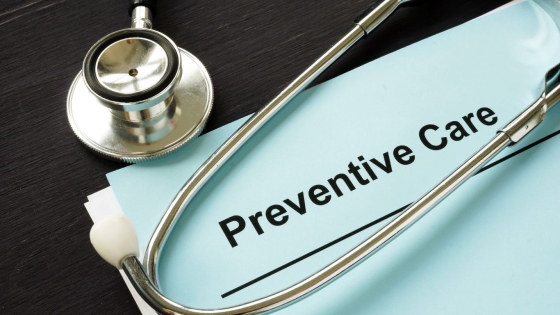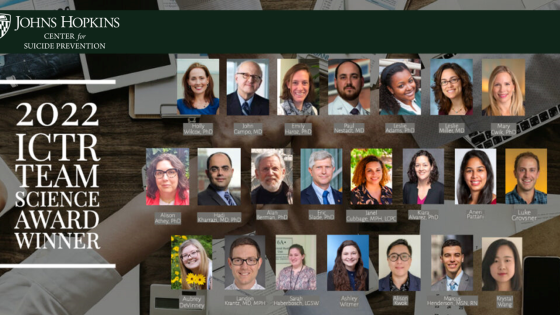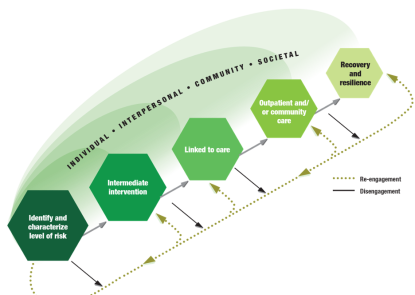Our Work
Our Research
We know something about what works for people known to be at risk, but the majority of people who die by suicide were not identified as at risk before death, and did not make it in to see a mental health professional. We have to start thinking about this other 60%. While healthcare settings are important, we also need efforts to reach the majority of suicidal people where they are - in the community, on social media, in schools, workplaces, all settings that we have not been able to fully engage and permeate. We know what works but unfortunately, currently most people who are suicidal will never receive an evidence-based practice. These are the challenges our center is working to address.

Active Research Grants
Our Awards

2022 ICTR Team Science Award
The Team Science Award aims to both recognize the great work Johns Hopkins researchers have been doing as multidisciplinary teams and to highlight best practices and share lessons learned in Team Science.
2016-2024 Excellence in Teaching Award
The Johns Hopkins Bloomberg School of Public Health has a long tradition and a firm commitment to instruction of the highest quality. Excellence in teaching stimulates intellectual curiosity in students and prepares them to address the most challenging public health problems facing the world today. Each term, students recognize through their course evaluations the faculty who have contributed significantly to the intellectual life of the School through their excellence in teaching. The Suicide as a Public Health Problem course has received the Excellence in Teaching award for Outstanding Overall Course and Overall Instructor Ratings.
Related Courses
Suicide As a Public Health Problem
330.674
(Course description)
Methods in Implementation Science
330.650.81
(Course description)
Mental Health in American Indian Communities
221.673
(Course description)
Population Health Informatics
309.631.81
(Course description)
Population Health: Analytic Methods and Visualization Techniques
309.635.81
(Course Description)
Indigenous Health
224.605.81 (online) & 224.605.01 (on-campus)
(Course Description)
Health Care Economics for Management and Practice
NR.110.619 (8101)
Qualitative Reasoning in Public Health
550.604.01 (on-campus) & 550.604.81 (online)
(Course description)
Formulating Policy: Strategies and Systems of Policymaking in the 21st Century
300.712.81
(Course Description)
Catalyzing Change Part 2: Health Policy Leadership
308.722.41
(Course Description)
Learn More About our Work on our Blog

Care of Cascade (COC) for Suicide Prevention
A study from the Johns Hopkins Center for Suicide Prevention introduces a public health-oriented Cascade of Care (COC) model for suicide prevention, published in the American Journal of Preventive Medicine.

CAP Laws to Reduce Youth Firearm Deaths and Suicides
A new study from the Johns Hopkins Center for Suicide Prevention highlights the critical role of Child Access Prevention (CAP) laws in reducing youth firearm suicides and other firearm-related deaths.

SUDs Linked to Over Fivefold Increased Risk of Suicide Mortality
A comprehensive meta-analysis conducted by researchers from the Johns Hopkins Center for Suicide Prevention reveals that substance use disorders (SUDs) are strongly associated with suicide mortality, increasing the risk by 5.58 times compared to non-users.
